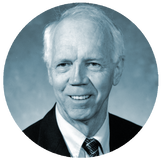|
Armistice Day, Thursday, November 11, 1943, is a day 80 years ago I will never forget. That morning my 10th grade English teacher, Miss Ruggles, told us about America’s role in the Great War. Then she introduced us to the War Poets, among them Rupert Brooke, Wilfred Owen, and John McCrae. McCrae authored one of the best known and most easily understood poems, “In Flanders Fields.” The opening lines read: In Flanders fields the poppies blow, Between the crosses, row by row. That mark our places . . . Then, at 11:00 a.m. the town’s factory whistles blew for two minutes, bringing everything to a halt. We stood at silent attention to commemorate the 25th anniversary of the
11 a.m. November 11, 1918 end of what has become known as World War I, “a war to end all wars.” We also stood to honor the more than 50,000 young American soldiers who died fighting in France. On arriving home that afternoon I noticed what appeared to be a telegram addressed to our father. When Dad came home from work, he moved to his favorite living room chair and started opening the mail. Suddenly he cried out: “It’s Jim!” We saw him clutching a War Department telegram that began with the by now familiar words: “We regret to inform you . . . .” It went on to say that our older brother Jim had been killed in combat in Italy on October 27, 1943. How heart-breaking for all of us, trying to take in this devastating news. In the days that followed, Jim’s death was not something we could easily talk about with each other, with schoolmates, or with neighborhood friends. We simply had to live with it and continue with our lives. But the pain never goes away. We soon received from the local American Legion Post a new service flag with its gold star to replace our blue star flag. Letters arrived from several of Jim’s buddies offering their sympathy. Several months later news came that Jim had been awarded posthumously a Silver Star for battlefield valor. He served as a forward observer whose dangerous assignment was to move beyond the front lines and direct artillery fire on enemy targets. After the war ended, another letter arrived asking whether my folks wanted Jim’s remains sent back to the U.S. or buried in the newly constructed American military cemetery in Nettuno, Italy. My parents wisely opted for his burial there with his fellow soldiers. My several visits over the years to Jim’s grave are always a mix of sadness offset by respect for the 7,860 soldiers killed in Sicily and southern Italy who lie buried there. They rest in the silent beauty of the well-cared-for cemetery. Each of its white marble grave markers stands in a sea of perfectly spaced and aligned rows of crosses and occasional stars of David. Each lists the soldier’s name and rank, military unit, home state, and date of death. JAMES W. HANSEN SGT 125 FA BN 34 DIV MINNESOTA OCT 27 1943 On each visit to Jim’s grave I see fewer American visitors. My two brothers and I, Korean War veterans now in our nineties, are doubtless the only living persons who knew our brother Jim. And soon we too will be gone. We hope on this Veterans Day that younger generations of Americans will pause to remember and honor the thousands of young Americans who died serving their country, young men they never knew but who sacrificed so much for all of us. Comments are closed.
|
About the AuthorAt age 92 I decided to showcase my recent and current writings on a variety of topics outside of my career interests as an economist. My wife Sally’s dementia, my experiences of war, and my interests in improving higher education all compel me to write.
For most of the last decade I maintained a low profile, necessitated by my wife Sally's suffering from a decade-long siege of vascular dementia. After she passed away several years ago I wrote about our experience, in the belief that this would be helpful to the many others who suffer from dementia and their family caregivers. I am currently seeking a publisher for my book manuscript: The Forgotten: Dementia and the Right to Die. Over the past few years I began working on several other writing projects that are described more fully elsewhere in my blog. These include a nearly-completed book manuscript on my "expected proficiencies approach to the college major'' as a vehicle for reinvigorating liberal education. I continue to write on the shortcomings of UW-Madison's affirmative action policies and programs that over the years have been renamed "diversity and inclusion" policies and programs. Within two weeks of my graduation from UW-Madison in June 1950, the Korean War broke out. I was drafted and expected to be sent to Korea to join our fighting forces there. But instead I was sent to Turkey for 18 months. How lucky I was. I am also writing a memoir of my Korean War military experience when I served as an U.S. Army adviser in our military aid program in Turkey. Until I began branching out beyond economics, I failed to realize what a profound effect the Great Depression and World War II had on me as I grew up. I have already captured some of these recollections, with more of them to follow. With that introduction, I turn you over to my blog entries as well as my other writing projects described more fully elsewhere in my blog. Best wishes ~ W. Lee Hansen Dear Friends: I want you to have an opportunity to sign up to receive my periodic postings. Instructions for doing so will be coming soon.
Award-winning author W. Lee Hansen, Ph.D. is Professor Emeritus of Economics at the University of Wisconsin-Madison. Full bio.
Categories
All
Archives
November 2023
|


 RSS Feed
RSS Feed